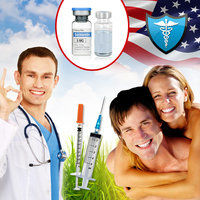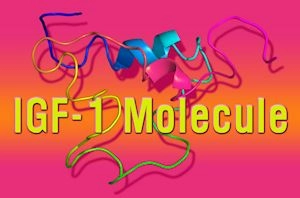Chronic illnesses such as diabetes, heart disease, and hypertension are prevalent among American men, often leading to a myriad of health complications. One of the less discussed but significantly impactful side effects of these conditions is erectile dysfunction (ED). This article delves into the intricate relationship between chronic illness and ED, offering insights and strategies for managing both effectively.
Understanding the Link Between Chronic Illness and ED
Chronic illnesses can disrupt the delicate balance required for achieving and maintaining an erection. For instance, diabetes can damage blood vessels and nerves, impairing blood flow to the penis. Similarly, cardiovascular diseases can hinder the vascular system's ability to supply adequate blood flow, a critical component of erectile function. Hypertension, often treated with medications that have sexual side effects, can further complicate the issue.
Research indicates that men with chronic illnesses are at a significantly higher risk of developing ED. A study published in the *Journal of Sexual Medicine* found that men with diabetes are three times more likely to experience ED than those without the condition. This statistic underscores the importance of addressing sexual health as part of comprehensive chronic illness management.
Strategies for Managing Chronic Illness and ED
Effective management of chronic illness and ED requires a multifaceted approach. Here are several strategies that can help American men navigate these challenges:
1. **Medical Management**: It is crucial to work closely with healthcare providers to manage the underlying chronic illness. This may involve adjusting medications, improving blood sugar control, or managing blood pressure more effectively. For ED, treatments such as phosphodiesterase type 5 inhibitors (e.g., Viagra, Cialis) can be effective, but they should be used under medical supervision, especially in men with heart conditions.
2. **Lifestyle Modifications**: Adopting a healthy lifestyle can significantly impact both chronic illness and ED. Regular physical activity, a balanced diet, and smoking cessation can improve overall health and sexual function. Exercise, in particular, has been shown to enhance cardiovascular health, which is vital for erectile function.
3. **Psychological Support**: The psychological impact of chronic illness and ED should not be underestimated. Feelings of frustration, anxiety, and depression can exacerbate ED. Seeking support from a mental health professional can be beneficial. Additionally, couples counseling can help address relationship strains that may arise from sexual dysfunction.
4. **Alternative Therapies**: Some men find relief from ED through alternative therapies such as acupuncture or herbal supplements. While these should not replace conventional treatments, they can be a complementary approach. It is essential to discuss any alternative therapies with a healthcare provider to ensure they are safe and appropriate.
The Importance of Open Communication
Open communication with healthcare providers and partners is paramount. Many men feel embarrassed or reluctant to discuss ED, which can delay treatment and exacerbate the condition. By fostering an environment of openness and understanding, men can receive the support and treatment they need to manage both their chronic illness and ED effectively.
Conclusion
The interplay between chronic illness and erectile dysfunction presents a significant challenge for many American men. However, with the right strategies and support, it is possible to manage both conditions effectively. By prioritizing medical management, embracing lifestyle changes, seeking psychological support, and maintaining open communication, men can improve their overall health and sexual well-being. Addressing these issues head-on not only enhances quality of life but also strengthens relationships and fosters a sense of empowerment in the face of chronic illness.
Contact Us For A Fast And Professional Response

- Emerging Victorious: The Journey from Erectile Dysfunction to Sexual Confidence [Last Updated On: February 25th, 2025] [Originally Added On: February 25th, 2025]
- Imprints of Triumph: Defeating Erectile Dysfunction One Victory at a Time [Last Updated On: February 26th, 2025] [Originally Added On: February 26th, 2025]
- Unraveling the Enigma: The Biochemical Cascade Behind Erectile Dysfunction [Last Updated On: February 27th, 2025] [Originally Added On: February 27th, 2025]
- Navigating the Path to Recovery: A Comprehensive Guide to Managing Erectile Dysfunction [Last Updated On: February 28th, 2025] [Originally Added On: February 28th, 2025]
- Unlocking Manhood: Navigating Life Passionately Beyond Erectile Dysfunction [Last Updated On: February 28th, 2025] [Originally Added On: February 28th, 2025]
- Shattering Misconceptions: Unveiling the Realities of Erectile Dysfunction [Last Updated On: February 28th, 2025] [Originally Added On: February 28th, 2025]
- Mental Triggers: Unraveling the Psychological Aspects of Erectile Dysfunction [Last Updated On: March 1st, 2025] [Originally Added On: March 1st, 2025]
- Shedding Light on the Enigma of Erectile Dysfunction Medications [Last Updated On: March 2nd, 2025] [Originally Added On: March 2nd, 2025]
- Revolutionizing Sexual Health: Modern Medical Interventions and Their Impact on Intimacy and Libido [Last Updated On: March 3rd, 2025] [Originally Added On: March 3rd, 2025]
- Comprehensive Guide to Understanding and Treating Erectile Dysfunction [Last Updated On: March 4th, 2025] [Originally Added On: March 4th, 2025]
- Unveiling the Path to Intimacy: Navigating Romance with Erectile Dysfunction [Last Updated On: March 4th, 2025] [Originally Added On: March 4th, 2025]
- Understanding Erectile Dysfunction: Emotional Impact and Coping Strategies for Men [Last Updated On: March 5th, 2025] [Originally Added On: March 5th, 2025]
- Exploring PDE5 Inhibitors: Effective Treatment for Erectile Dysfunction in Men [Last Updated On: March 6th, 2025] [Originally Added On: March 6th, 2025]
- Evolution of Erectile Dysfunction Treatments: Historical Insights to Modern Advancements [Last Updated On: March 7th, 2025] [Originally Added On: March 7th, 2025]
- Revolutionizing Erectile Dysfunction Treatment: Innovations, Technologies, and Holistic Approaches [Last Updated On: March 8th, 2025] [Originally Added On: March 8th, 2025]
- The Crucial Link Between Vascular Health and Erectile Dysfunction: A Comprehensive Exploration [Last Updated On: March 9th, 2025] [Originally Added On: March 9th, 2025]
- Managing Erectile Dysfunction: Diet, Exercise, and Lifestyle Changes for American Males [Last Updated On: March 11th, 2025] [Originally Added On: March 11th, 2025]
- Unraveling the Testosterone-Erectile Dysfunction Connection: A Comprehensive Insight for American Males [Last Updated On: March 12th, 2025] [Originally Added On: March 12th, 2025]
- Unveiling Triumph: Real-Life Journeys Through Erectile Dysfunction Recovery [Last Updated On: March 13th, 2025] [Originally Added On: March 13th, 2025]
- Managing Erectile Dysfunction: Causes, Lifestyle Tips, and Holistic Approaches [Last Updated On: March 15th, 2025] [Originally Added On: March 15th, 2025]
- Unveiling the Truth: Dispelling Myths About Erectile Dysfunction in American Men [Last Updated On: March 15th, 2025] [Originally Added On: March 15th, 2025]
- Stress, Sleep, and ED: A Holistic Approach for American Men's Sexual Health [Last Updated On: March 17th, 2025] [Originally Added On: March 17th, 2025]
- Erectile Dysfunction: Prevalence, Impact, and Holistic Treatment Approaches in American Males [Last Updated On: March 19th, 2025] [Originally Added On: March 19th, 2025]
- Erectile Dysfunction: Innovative Therapies and Holistic Approaches Transforming Treatment [Last Updated On: March 19th, 2025] [Originally Added On: March 19th, 2025]
- Erectile Dysfunction: Understanding, Treating, and Breaking the Stigma in American Men [Last Updated On: March 19th, 2025] [Originally Added On: March 19th, 2025]
- Telemedicine's Role in Managing Erectile Dysfunction: Benefits and Challenges [Last Updated On: March 20th, 2025] [Originally Added On: March 20th, 2025]
- Natural Remedies and Lifestyle Hacks for Managing Erectile Dysfunction Effectively [Last Updated On: March 20th, 2025] [Originally Added On: March 20th, 2025]
- Exploring Alternative Therapies for Erectile Dysfunction in American Males [Last Updated On: March 20th, 2025] [Originally Added On: March 20th, 2025]
- Global Approaches to Treating Erectile Dysfunction: Insights for American Males [Last Updated On: March 21st, 2025] [Originally Added On: March 21st, 2025]
- Overcoming Erectile Dysfunction: Communication, Treatment, and Lifestyle Changes for Couples [Last Updated On: March 21st, 2025] [Originally Added On: March 21st, 2025]
- Effective Treatments for Erectile Dysfunction: From Medications to Surgery [Last Updated On: March 21st, 2025] [Originally Added On: March 21st, 2025]
- Diet, Exercise, and Psychology: Comprehensive Strategies to Combat Erectile Dysfunction [Last Updated On: March 22nd, 2025] [Originally Added On: March 22nd, 2025]
- Erectile Dysfunction as an Early Indicator of Cardiovascular Disease in American Men [Last Updated On: March 23rd, 2025] [Originally Added On: March 23rd, 2025]
- Erectile Dysfunction: Causes, Diagnosis, Treatment, and Lifestyle Management Strategies [Last Updated On: March 23rd, 2025] [Originally Added On: March 23rd, 2025]
- Economic Impact and Cost Management Strategies for Erectile Dysfunction in American Males [Last Updated On: March 23rd, 2025] [Originally Added On: March 23rd, 2025]
- Understanding Erections and Erectile Dysfunction in American Men: A Comprehensive Guide [Last Updated On: March 23rd, 2025] [Originally Added On: March 23rd, 2025]
- Debunking ED Myths: Insights into American Pop Culture's Impact and Realities [Last Updated On: March 23rd, 2025] [Originally Added On: March 23rd, 2025]
- Celebrity Revelations Boosting Awareness and Action on Erectile Dysfunction in America [Last Updated On: March 24th, 2025] [Originally Added On: March 24th, 2025]
- Personalized Medicine Revolutionizes ED Treatment: Tailoring to Individual Needs [Last Updated On: March 24th, 2025] [Originally Added On: March 24th, 2025]
- Counseling's Crucial Role in Treating Erectile Dysfunction in American Males [Last Updated On: March 24th, 2025] [Originally Added On: March 24th, 2025]
- Vascular Health's Crucial Role in Erectile Function and ED Management [Last Updated On: March 24th, 2025] [Originally Added On: March 24th, 2025]
- Nerve Damage and Erectile Dysfunction: Causes, Diagnosis, and Treatment Options [Last Updated On: March 24th, 2025] [Originally Added On: March 24th, 2025]
- Nutrition's Role in Enhancing Sexual Health and Combating Erectile Dysfunction [Last Updated On: March 24th, 2025] [Originally Added On: March 24th, 2025]
- Erectile Dysfunction: Navigating Its Impact on Relationships and Healing Together [Last Updated On: March 24th, 2025] [Originally Added On: March 24th, 2025]
- Erectile Dysfunction's Impact on Self-Esteem: A Comprehensive Guide to Recovery [Last Updated On: March 24th, 2025] [Originally Added On: March 24th, 2025]
- CBT: A Promising Non-Invasive Treatment for Erectile Dysfunction in American Males [Last Updated On: March 25th, 2025] [Originally Added On: March 25th, 2025]
- Erectile Dysfunction in American Men: Holistic Approaches and Treatments [Last Updated On: March 25th, 2025] [Originally Added On: March 25th, 2025]
- Exploring Non-Pharmacological Approaches to Managing Erectile Dysfunction in American Men [Last Updated On: March 25th, 2025] [Originally Added On: March 25th, 2025]
- Workplace Stress and Its Impact on Erectile Dysfunction: Strategies for American Men [Last Updated On: March 25th, 2025] [Originally Added On: March 25th, 2025]
- Performance Anxiety and ED: Understanding and Breaking the Cycle in American Males [Last Updated On: March 25th, 2025] [Originally Added On: March 25th, 2025]
- Exercise as a Powerful Tool for Managing Erectile Dysfunction in American Males [Last Updated On: March 26th, 2025] [Originally Added On: March 26th, 2025]
- Herbal Remedies for Erectile Dysfunction: A Holistic Approach for American Males [Last Updated On: March 26th, 2025] [Originally Added On: March 26th, 2025]
- Understanding Erectile Dysfunction: Anatomy, Causes, and Treatment for American Men [Last Updated On: March 26th, 2025] [Originally Added On: March 26th, 2025]
- Wearable Tech Revolutionizes ED Management for American Males [Last Updated On: March 26th, 2025] [Originally Added On: March 26th, 2025]
- Physical Therapy: A Promising Approach to Treating Erectile Dysfunction in American Males [Last Updated On: March 26th, 2025] [Originally Added On: March 26th, 2025]
- Performance Anxiety and ED: Understanding and Overcoming the Cycle [Last Updated On: March 26th, 2025] [Originally Added On: March 26th, 2025]
- Revolutionizing Men's Sexual Health: From ED Taboos to Innovative Treatments [Last Updated On: March 26th, 2025] [Originally Added On: March 26th, 2025]
- Navigating ED, Depression, and Anxiety: A Guide for American Men [Last Updated On: March 27th, 2025] [Originally Added On: March 27th, 2025]
- Navigating Erectile Dysfunction: Strategies for Couples to Maintain Intimacy and Support [Last Updated On: March 27th, 2025] [Originally Added On: March 27th, 2025]
- Restorative Sleep: Key to Enhancing Erectile Function in American Males [Last Updated On: March 27th, 2025] [Originally Added On: March 27th, 2025]
- Specialized ED Clinics: Holistic Approaches and Success Stories in Treatment [Last Updated On: March 27th, 2025] [Originally Added On: March 27th, 2025]
- Revolutionizing ED Treatment: New Medications and Holistic Approaches [Last Updated On: March 27th, 2025] [Originally Added On: March 27th, 2025]
- Innovative Therapies and Technologies Transforming Erectile Dysfunction Treatment [Last Updated On: March 27th, 2025] [Originally Added On: March 27th, 2025]
- Managing Erectile Dysfunction: Lifestyle, Medical, and Psychological Approaches for American Men [Last Updated On: March 27th, 2025] [Originally Added On: March 27th, 2025]
- Enhancing Sexual Health: Diet, Lifestyle, and Holistic Approaches for Men [Last Updated On: March 28th, 2025] [Originally Added On: March 28th, 2025]
- Erectile Dysfunction: Understanding PDE5 Inhibitors and Their Impact on American Males [Last Updated On: March 28th, 2025] [Originally Added On: March 28th, 2025]
- Managing Erectile Dysfunction: Dos and Don'ts for American Males [Last Updated On: March 28th, 2025] [Originally Added On: March 28th, 2025]
- Prostate Health and Its Impact on Sexual Function: Understanding ED Connection [Last Updated On: March 30th, 2025] [Originally Added On: March 30th, 2025]
- Holistic Approaches to Overcome Erectile Dysfunction in American Males [Last Updated On: March 31st, 2025] [Originally Added On: March 31st, 2025]
- Navigating Erectile Dysfunction: Rebuilding Romance and Intimacy in Relationships [Last Updated On: March 31st, 2025] [Originally Added On: March 31st, 2025]
- Navigating Erectile Dysfunction: Preparing for and Understanding Your Consultation Process [Last Updated On: March 31st, 2025] [Originally Added On: March 31st, 2025]
- Overcoming Erectile Dysfunction: Harnessing Positivity and Mental Strategies [Last Updated On: April 2nd, 2025] [Originally Added On: April 2nd, 2025]
- Understanding and Managing Erectile Dysfunction: A Holistic Approach for American Men [Last Updated On: April 2nd, 2025] [Originally Added On: April 2nd, 2025]
- Erectile Dysfunction: Transforming Challenges into Deeper Intimacy and Connection [Last Updated On: April 4th, 2025] [Originally Added On: April 4th, 2025]
- Erectile Dysfunction Medications: Enhancing Performance and Confidence in American Males [Last Updated On: April 5th, 2025] [Originally Added On: April 5th, 2025]
- Latest Advances in ED Research: From Science to Solutions for American Men [Last Updated On: April 7th, 2025] [Originally Added On: April 7th, 2025]
- Innovative Drug Delivery and Technology Transform ED Treatment in the US [Last Updated On: April 8th, 2025] [Originally Added On: April 8th, 2025]
- Exercise as a Potent Remedy for Erectile Dysfunction in American Men [Last Updated On: April 9th, 2025] [Originally Added On: April 9th, 2025]
- Genetic Insights Revolutionize Personalized Treatment for Erectile Dysfunction in American Men [Last Updated On: April 9th, 2025] [Originally Added On: April 9th, 2025]
- Optimal ED Medication Dosage: Balancing Efficacy and Safety in American Males [Last Updated On: April 9th, 2025] [Originally Added On: April 9th, 2025]

















